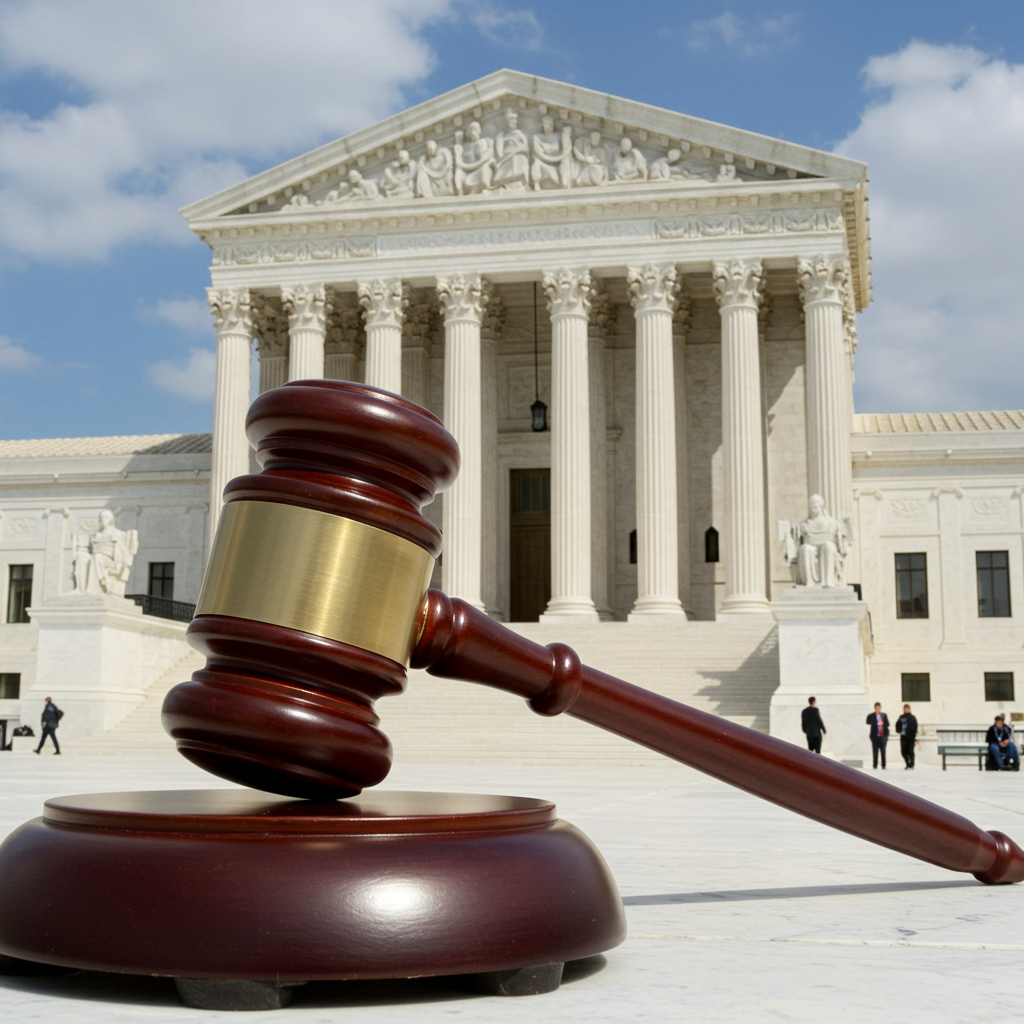In a landmark decision concerning LGBTQ+ rights and healthcare access, the Supreme Court has upheld a Tennessee law that bans certain gender-affirming medical treatments for minors. The 6-3 ruling marks the first time the high court has weighed in on a state law restricting care for transgender youth, setting a significant precedent that affects similar bans in roughly half the country.
The case, U.S. v. Skrmetti, challenged Tennessee’s Senate Bill 1 (SB1), which prohibits doctors from providing puberty blockers or hormone therapy to minors for the treatment of gender dysphoria. Plaintiffs, including transgender teenagers, their parents, and a physician, argued that the ban was unconstitutional sex discrimination, partly because the same medications are allowed for minors being treated for other conditions, such as delayed puberty.
The Majority’s Reasoning
Chief Justice John Roberts authored the 6-3 majority opinion. The Court’s conservative justices concluded that the Tennessee law does not violate the Equal Protection Clause of the Fourteenth Amendment. Roberts wrote that the complex scientific and policy debates surrounding gender-affirming care in an evolving field should be left to “the people, their elected representatives, and the democratic process,” rather than being decided by the Court through judicial review.
Roberts rejected the argument that the law constitutes sex discrimination. He stated that SB1 creates a level playing field by removing one set of diagnoses—gender dysphoria—from the range of treatable conditions for minors, rather than excluding individuals based on their transgender identity. He reasoned that the law’s restrictions are based on age and the specific medical use for gender dysphoria in minors, distinguishing it from other treatments allowed for minors for different medical conditions. The majority applied the lowest level of judicial review, known as rational basis review, under which a law is upheld if there is any rational justification for it.
While acknowledging that major American medical associations endorse gender-affirming care as medically necessary, the Chief Justice’s opinion cited ongoing debate and evolving science regarding the alleged benefits of these treatments, suggesting a rational basis for the state’s regulatory approach.
Sharp Dissents
The Court’s three liberal justices dissented. Justice Sonia Sotomayor read her dissent from the bench, a practice indicating strong disagreement. She argued forcefully that SB1 clearly amounts to a “sex based classification” and that the majority was refusing to acknowledge this reality, effectively “contorting logic and precedent.”
Sotomayor contended that the decision “invites legislatures to engage in discrimination,” authorizing “untold harm” to transgender children and their families. She criticized the majority for “retreating from meaningful judicial review exactly where it matters most,” asserting that the Court was abandoning transgender children and their families to “political whims.” Justice Ketanji Brown Jackson joined Sotomayor’s dissent in full, while Justice Elena Kagan joined in part, agreeing that a higher level of scrutiny was required.
In a separate concurrence, Justice Amy Coney Barrett, joined by Justice Clarence Thomas, emphasized her view that transgender people are not a “suspect class” requiring heightened judicial scrutiny. She suggested that legislatures are the appropriate bodies to make decisions on issues like this.
Impact and Reactions
The ruling is seen as a devastating setback by LGBTQ+ rights advocates. Chase Strangio, an ACLU attorney who argued the case and is the first openly transgender person to do so before the Supreme Court, called the decision a “devastating loss” but vowed to continue fighting for transgender dignity and equality on other legal fronts. Advocates warn that the decision protects similar laws enacted in over 26 states, creating a “patchwork of access” that forces families to travel long distances for care, a burden not all can afford.
According to the Williams Institute at UCLA, an estimated 300,000 Americans aged 13-17 identify as transgender, and approximately one-third of these minors live in states that have enacted bans on gender-affirming care. The decision underscores the increasing politicization of transgender issues across the United States, aligning with broader state and federal efforts to restrict transgender rights, including in areas like school sports and bathroom access.
Conversely, Tennessee Attorney General Jonathan Skrmetti celebrated the ruling, stating it was a “landmark VICTORY for Tennessee at SCOTUS in defense of America’s children.” The American Academy of Pediatrics, however, reiterated its support for gender-affirming care for minors, emphasizing the importance of clinical guidance free from political interference.
While the ruling grants states significant power over transgender medical care for minors, it leaves several related issues unresolved, including future challenges regarding healthcare access for adults or other forms of discrimination, which may yet reach the Supreme Court.



